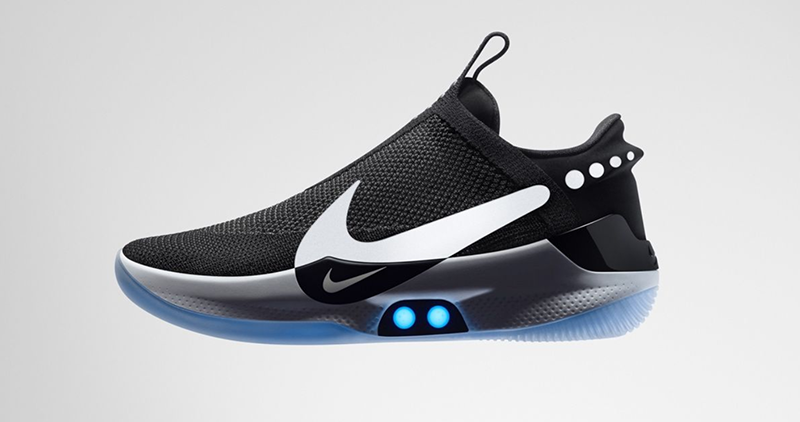A court in the United Kingdom sided with Nike on Thursday in an ongoing trademark squabble with Puma that centers on the Beaverton-based sportswear titan’s quest to register the word “Footware” as a trademark for use in connection with computer hardware modules, electronic devices, and computer software. Following an unfavorable outcome before the United Kingdom Intellectual Property Office in September 2020, in which a Hearing Officer rejected Puma’s bid to block the registration of Nike’s “Footware” mark, Puma lodged an appeal with the High Court of Justice in London, arguing that Nike’s registration should be barred because it is a descriptive term, not an indicator of source of the proposed goods and services listed in its application.
In a decision dated May 27, Mr. Justice Zacaroli of the High Court of Justice in London dismissed Puma’s appeal, paving the way for Nike’s application for the “Footware” mark – which it filed with the United Kingdom Intellectual Property Office (“UKIPO”) in March 2019 – to proceed in the registration process. In his decision, Justice Zacaroli first addressed Puma’s primary point of contention: that the UKIPO’s Hearing Officer failed to consider the use of the “footware” trademark “across the whole range of goods and services” for which Nike is seeking registration. Specifically, Puma argued that the UKIPO did not take into account the “notional and fair use” of the “sub-set of goods and services consisting of use in relation to footwear with embedded technology” when determining whether the “footware” mark is “descriptive of the goods and services in question” (i.e., whether the mark “will actually be recognized by the relevant class of persons as a descriptive.”)
Siding with Nike, Justice Zacaroli held that in determining that “footware” is not an “ordinary descriptive term for the goods and services” or “customary in the relevant trade,” the UKIPO’s Hearing Officer did, in fact, “carry out the necessary assessment across the whole range of goods and services,” including the sub-set that Puma cited. For instance, the court noted that in looking at the individual elements of the “footware” mark, the Hearing Officer found that “foot” was “not descriptive of any of the goods or services for which [Nike’s] registration is sought,” including “the precise sub-set relied on by Puma (software, hardware and firmware having ‘some application in footwear with embedded technology’),” and ultimately, concluded that “footware” would not be considered descriptive of these goods/services.
Against that background, the court determined that Puma’s second issue – namely, that if the UKIPO’s Hearing Officer “had considered notional and fair use in relation to the area of specifications where Puma contends that the mark is descriptive, she could only have reasonably concluded that the mark was descriptive” – was not strictly relevant since the Hearing Officer did consider the whole array of goods and services, and thus, Puma’s “arguments in this respect did not reach the threshold of identifying any error of principle.”
“At most,” Justice Zacaroli states, “they amounted to a submission that a different conclusion would have been preferable.”
The judge goes on to hold that while Puma has argued that “the Hearing Officer was wrong to conclude that ‘foot’ is not descriptive of any of the relevant goods and services, the submission does not, however, go beyond the assertion that ‘foot’ is descriptive of all the relevant goods and services when used in relation to footwear.” That does not identify “an error of principle on the part of the Hearing Officer,” and in any event, the court states that “the Hearing Officer’s conclusion as to the word ‘foot’ was only a stepping-stone towards consideration of the critical question whether the trademark as a whole (‘footware’) is descriptive of any of the goods or services.”
Where Puma’s counsel was “on slightly stronger ground,” according to the court, was in arguing that “the Hearing Officer’s conclusion that ‘ware’ was not descriptive of any of the services in class 38 was unsupported by evidence.” Justice Zacaroli states in the decision that “the only matter to which [Nike’s counsel] could point in support of that conclusion was the absence of any word ending in ‘ware’ in the services described in class 38.”
Addressing Puma’s argument that Nike’s “footware” mark would be “seen simply as a misspelling of ‘footwear,’ which would be descriptive in relation to software, hardware, etc. for us in relation to footwear with embedded technology,” the court said that it does not see “how this point takes Puma’s case any further.” The court also distinguished the matter at hand from the case that Puma pointed to for support, in which “the word ‘RELY-ABLE’ was held, notwithstanding the mis-spelling, to be immediately perceived and understood by the relevant public as meaning ‘reliable,’ which was a description of at least part of the goods and services for which registration was sought.” In Nike’s case, Justice Zacaroli determined that “even if the spelling mistake is corrected, the word [footwear] is still not descriptive of any of the relevant goods and services.”
And in fact, the judge held that when the spelling is corrected, the mark “lacks the play on words which the Hearing Officer noted would lead (albeit not immediately and not without mental gymnastics) the average consumer to link it to software to be used in relation to embedded technology in shoes.”
With the foregoing in mind, the court dismissed Puma’s appeal. Puma can now seek intervention from the Court of Appeal.











